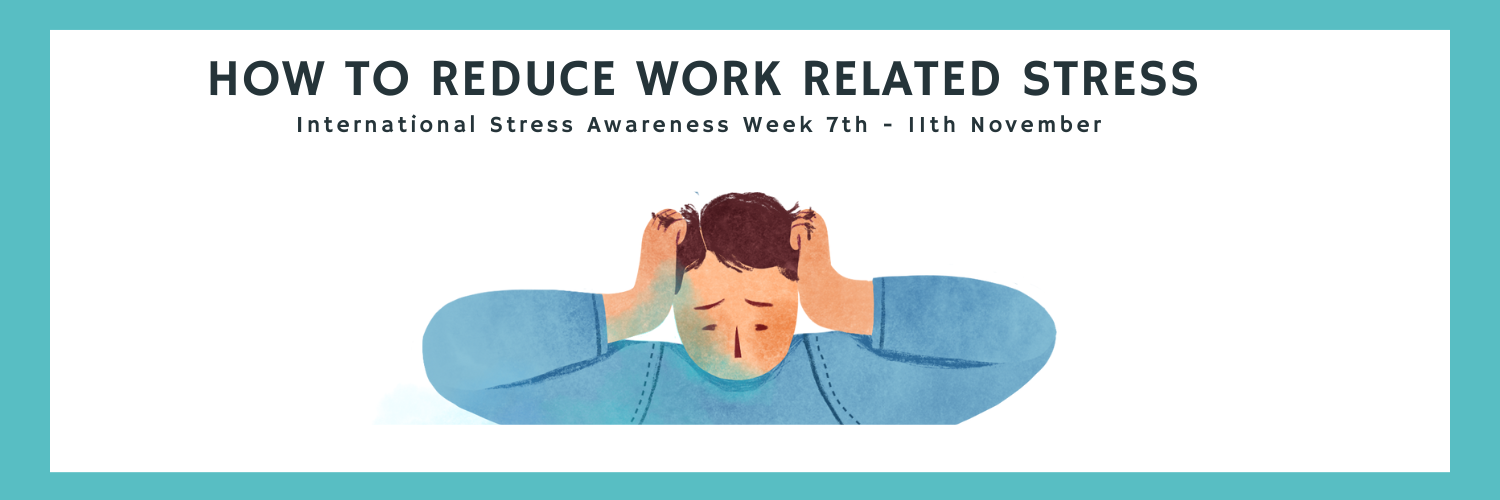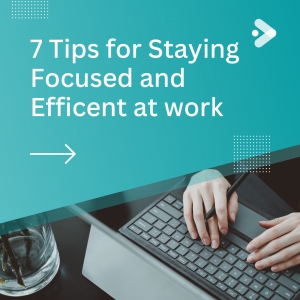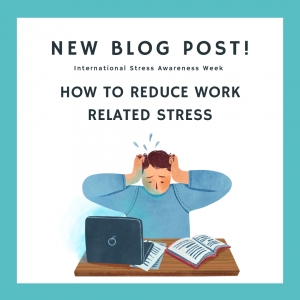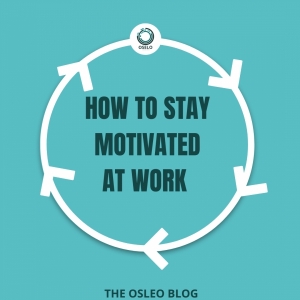7 Tips for Staying Focused and Efficient at Work

Being productive is essential for success and staying ahead in the fast-paced workplace of today. It's easy to feel overloaded and lose concentration when there are so many distractions and multiple tasks to be completed. However, you can manage productivity and reach the goals you set for yourself if you set the correct methods.
Set Clear Goals and Priorities
Setting clear priorities and goals is the first step to increasing productivity. Set your goals for the day and prioritise tasks according to significance and completion dates. Make a to-do list and divide more challenging tasks into more manageable chunks. Knowing what has to be done when and how can help you stay organised and focused.
Manage Your Time Wisely
For productivity, time management is essential. Make the most of your day by designating timeslots for different tasks. Avoid multitasking since it might make you less productive and more likely to make mistakes. Instead, give one task at a time your whole attention and schedule uninterrupted time for it. Utilise time management applications, calendars, and other productivity tools to help you keep organised and productive.
Minimize Distractions
The greatest threat to productivity is distraction. Take choices to reduce the distractions you experience the most by identifying them. If email notifications, for instance, frequently interfere with your work, disable notifications or designate specified times to check your inbox. Block or restrict access to social networking websites if they are a distraction during working hours. To help with concentration and reduce distractions, set up a calm and orderly workstation.
Take Regular Breaks
It may seem counterintuitive to productivity to take regular breaks, but doing so is essential for maintaining focus and energy. According to studies, taking little breaks throughout the day could increase creativity and productivity. Make use of your breaks to relax, stretch, or do something unrelated to your job. You may come back to your job with a new perspective and more energy by taking a little break.
Prioritise Self-Care
Your productivity depends on how you are feeling. Prioritise your own well-being and keep a good work-life balance. Get enough rest, eat well, move around frequently, and handle stress. Being physically and psychologically well will help you stay energised, focused, and resilient, which will ultimately lead to greater productivity.
Delegate and Collaborate
Don't be worried about collaborating with coworkers or giving tasks. If your workload is too much for you to handle, think about delegating some of the work or forming a team to share the stress. By utilising the capabilities of each team member, delegation and collaboration will not only reduce your workload but also build cooperation and increase production.
Learn and Improve
Continuous learning and improvement are essential for staying productive at work. Stay updated with the latest tools, techniques, and best practices in your field. Seek feedback from your colleagues or supervisor to identify areas of improvement. Reflect on your performance regularly and make adjustments as needed. Embrace a growth mindset and strive for continuous improvement to enhance your productivity over time.
Women in Tech – ‘Bro Culture’
 Did you know 71% of women that are/have worked within a Tech company have said there has been a ‘Bro Culture’?
Did you know 71% of women that are/have worked within a Tech company have said there has been a ‘Bro Culture’?
But what even is Bro Culture?
The subculture known as "bro culture" encourages discrimination and segregation. We see that this culture is more pervasive in fields where men predominate, such as the technology sector.
“Bro culture” encourages solitude and exclusivity. It's like an exclusive men's club at work that supports the competitive guy who puts winning above all else.
“Bro culture” creates a toxic workplace environment that alienates women and other marginalised groups and can also contribute to a lack of diversity in hiring and promotion practices.
How do we combat this?
- Companies should create a policy of complete intolerance for harassment and discrimination. Clear rules and processes should be in place at businesses to deal with instances of discrimination and harassment. There should be a method in place for reporting problems, and these regulations should be explained to all staff.
- Promote an inclusive culture. Businesses should make an effort to foster an inclusive and diverse culture. This can be accomplished through instruction, team-building exercises, and other programmes that encourage respect for all viewpoints and life experiences.
- Promote responsibility. Workers should be held responsible for their activities if they exhibit behaviours that support the "Bro" culture. Disciplinary action, including termination in extreme circumstances, may be involved.
- Promote open communication. Businesses should promote open dialogue among staff members, especially by setting up forums for suggestions and ideas. Employees will be able to voice issues and suggest ways to enhance the workplace culture thanks to this.
- Provide training on unconscious bias. Many workers might not be conscious of their prejudices or how their behaviours affect other people. Unconscious bias training can assist increase awareness and encourage more inclusive behaviour.
What is the positive impact of reducing Bro culture?
- Improved diversity: Businesses may draw a more varied pool of job applicants by fostering a more inclusive workplace culture. Wider views, ideas, and methodologies may result from this, which can boost originality and creativity.
- Improved employee engagement: Employees are more likely to be engaged and productive when they feel valued and respected by their employers.
- Enhanced brand reputation: Organisations that are renowned for supporting a great workplace culture are more likely to recruit top personnel and have a good reputation with stakeholders and clients.
- Better decisions: Decision-making may be completer and more well-rounded when several views are taken into account.
- Profitability: Research has found that businesses with a more diversified staff typically have higher profits.
71% of Women who answered a recent survey has felt “Bro Culture” in some way or another to combat this we ALL need to come together to make sure accountability is taken reduce this problem in the workplace. After all it benefits EVERYONE!
How to Reduce Work Related Stress

Everyone has their own way of dealing with stress. This week is about raising awareness for stress prevention and showing stress is something everyone feels. The theme this year is Working together to Build Resilience and Reduce stress. Often, dealing with stress is never easy and it can lead to burnout, we’re going to share some tips on how to deal with stress in the workplace.
Although your stress may not be work-related, it is still important you make your manager/employer aware of how you are feeling. They may be able to relieve your work amount, reduce your task list, extend deadlines, or offer to speak about why you are feeling stressed and see if they can help in anyway. Work-related stress can usually be relieved if you speak to someone. The earlier the issue is addressed, the less impact it will have on your physical and mental health.
It is crucial to keep good time management to help reduce stress. With many different projects on the go, work can often get overwhelming and build up stress, a great way to avoid this is by managing your time and allowing yourself a set amount of time for each project a day. If you feel like you have accepted too much work onto your plate, then relay that to your manager and ask for additional support in the areas you feel like you need it. Multitasking is beginning to become a thing of the past, where quality is more important than quantity, reports have shown it is better to only focus on one thing at a time to maximise your potential.
Awarding yourself for the small wins may not seem like a big deal, but they all contribute to the bigger picture. Everything you work on is a process to something bigger, the small wins make the big wins happen and it is important for you to recognise this as it can help you feel like your project is moving in the right direction.
Needing to take time for yourself is something that should be more normalised. The pressure of work and life can be tricky to balance, everyone needs some downtime. Burnout Is a horrible feeling, especially when it is about something you love and enjoy doing. Although using your holiday may not seem like an option when you are feeling overwhelmed at work, it could help you recharge and come back to your projects with a clear head.
If this feeling happens too often, but you know you are an organised person, it may be time to create a plan or change your organisation strategy. Although the way you organise your work and day may have worked in the past, it is possible it is no longer working. This could be for a number of reasons, your position may have changed, your workload has grown, you have bought on a stressful client etc. If you are unsure how to change your strategy, as your colleagues for their advice.
Life After Redundancy
 Being made redundant is never nice, however, it is key to remind yourself It is not personal, it’s just business. The important thing to know after you have been made redundant is your rights.
Being made redundant is never nice, however, it is key to remind yourself It is not personal, it’s just business. The important thing to know after you have been made redundant is your rights.
Your rights will be different depending on which country you live in; this is based on UK rights. If you are under the age of 22 but are eligible for statutory pay, you will get half a week's pay for each full year you were with the company. If you are aged 22+ but under 41, you will receive one week's pay for each year you were above 22. You will receive one and half weeks of pay for each full year you were 41 or older.
In the UK, you are not entitled to statutory pay if:
- Your employer offers to keep you on
- Your employer offers you a suitable work alternative which you refused without good reason
- Former registered dock workers and share fishermen
- Crown servants, members of the armed forces or police services
- Apprentices who are to employees at the end of their training
- A domestic servant who is a member of the employer’s immediate family
(source: https://www.gov.uk/redundancy-your-rights/redundancy-pay)
It’s discrimination if you’re made redundant at least partly because you’re:
- During pregnancy or maternity leave
- A certain race, ethnicity or nation
- married or in a civil partnership
- a man or a woman
- disabled
- Part of the LGBTQ+ community
- have a particular religion or set of beliefs
- older or younger than other individuals you work with
These categories are called ‘protected characteristics’. If you fall into one of these categories, you may still be made redundant, as long as the above is not the reason.
How to cope with redundancy
It is important to remember, that being made redundant is not always a reflection of you or your work.
There are various different directions you could go in after being made redundant.
Some people will want to take a break from working to travel, spend time at home or take the opportunity to put themselves through further education. However, this is not always a choice everyone will be able to make, others will need to go back to work.
If you plan to start applying for jobs straight away, it is important you double check with your employer that you will be allowed paid time off for job interviews, depending on your government rules, this may be a legal requirement of your current employer.
Before you begin searching for employment, it is essential to check that your CV is up-to-date, has all the necessary information, and, if at all feasible, include a reference from your present company. Need tips for updating your CV? Our top senior recruiter has shared what they look for in a CV: https://www.oselorecruitment.com/blog/blog/tips-for-writing-your-cv
Being made redundant may be a blessing in disguise for some, especially If their current position is not enjoyable for them anymore. If you find yourself in this position, it’s crucial that you consider what it is you want to be doing. The best way to do this is to ask yourself, what do I like and dislike in the current day-to-day tasks of my role, and work from there. It may be only a slight change, for example going from HR to admin, or you may realise you need a complete change in the industry. Whatever the outcome is, it is important you take this opportunity and use it to your advantage.
How to stay motivated at work
 Staying motivated at work can be difficult. This article is going to discuss some tips on how to keep yourself motivated and productive.
Staying motivated at work can be difficult. This article is going to discuss some tips on how to keep yourself motivated and productive.
Often distractions are unavoidable, whether that’s in the office or working from home. It is easier said than done to align your calendars with others so you are able to focus on your heaviest tasks when others around you are busy, or to say just book out a meeting room.
Timers
Timers are a massive helping hand when you are having to focus on more than one project at a time. This allows to dedicate a set amount of time to one project before working on the other without having to keep checking the time. Although some most people would advise not multitasking when overwhelmed, for some it's not an option.
Break down your tasks
It is completely normal to feel burnt out when you have X number of goals to achieve by a certain date. A good technique to break down tasks to make them more manageable is to set yourself a little task. By doing this you are not exceeding your own expectations and allowing yourself to only focus on completing one thing at a time.
Research is also work
Research is also progress, don’t be hard on yourself if you didn’t manage to write or complete X amount of work. Doing research on your project such as finding examples, inspiration, and structure is still progress. Although it does not feel like progress as it is not physical work that contributes to the content, having a full understanding of the project is imperative; therefore, any research which allows you to complete this project to your best ability is essential and necessary.







